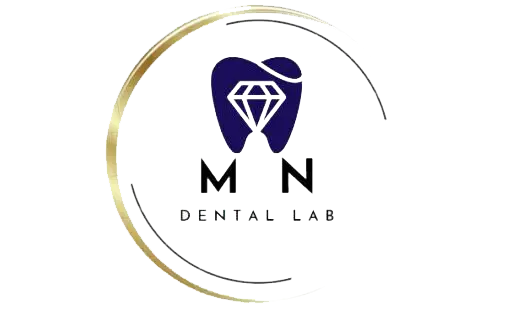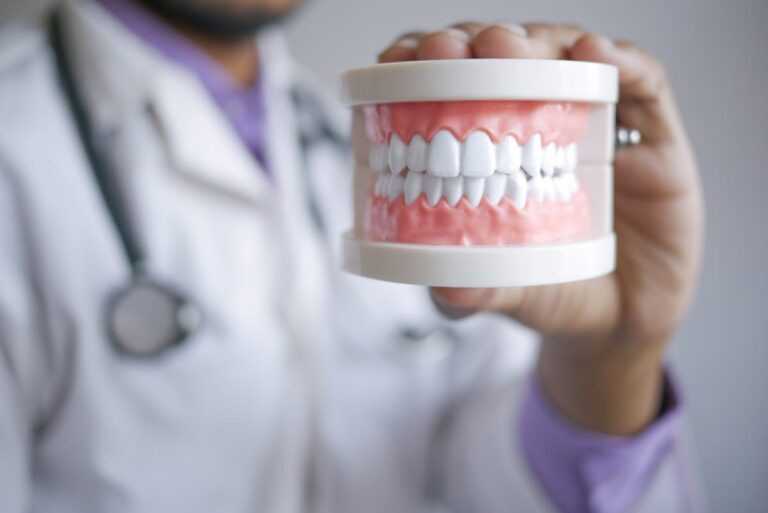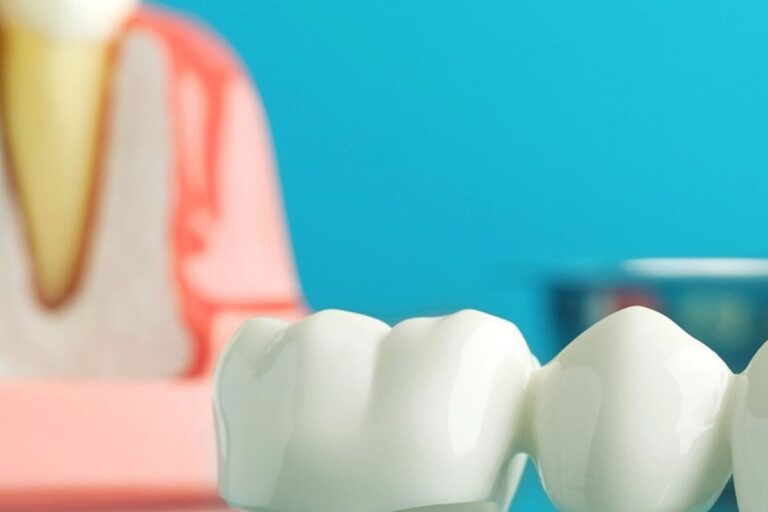Recovering from a dental implant is essential for success. In Houston, following key steps like managing pain, maintaining oral hygiene, and adjusting your diet can significantly improve your healing process. It’s also important to watch for any problems and keep up with follow-up visits to your dentist. These steps work together to ensure your dental implant journey goes smoothly.
Pain Management: After the procedure, managing pain is crucial. Use prescribed medications and apply ice packs to reduce swelling. Rest and avoid strenuous activities to aid recovery.
Oral Hygiene: Keep your mouth clean to prevent infections. Gently rinse with saltwater and brush your teeth carefully around the implant area.
Dietary Modifications: Eat soft foods that don’t require much chewing, like soups and smoothies. Avoid hard or sticky foods that might disturb the implant area.
Watch for Complications: Be alert for signs like excessive bleeding, severe pain, or infection. Contact your dentist if you notice anything unusual.
Follow-up Appointments: Regular visits to your dentist ensure the implant is healing well and any issues are addressed promptly. These check-ups are vital for long-term success.
By following these practical steps, you’ll support a smooth recovery and set the stage for a successful dental implant experience.
Understanding the Dental Implant Procedure
Getting a dental implant involves several key steps to ensure success. First, your dentist will prepare the implant site by checking if your jawbone is healthy and strong enough to hold the implant. This means looking at bone density and overall health. Advanced imaging helps plan where the implant will go and at what angle.
Once the site is ready, the dentist places a titanium post into your jawbone. This post acts like a replacement tooth root and is crucial for supporting the new tooth. The procedure is done carefully to minimize any discomfort and help the implant fuse with the bone properly. Throughout the process, the dentist makes sure you understand what’s happening and feel comfortable.
Immediate Post-Operative Care
Reducing swelling and controlling bleeding are key after getting a dental implant. Use cold compresses on your face to help with swelling. For bleeding, follow your dentist’s instructions on using gauze. These simple steps make you more comfortable and help you heal better right after surgery.
Manage Swelling Effectively
Managing swelling after dental implant surgery is key to a smooth recovery. Swelling is your body’s natural reaction to surgery, but you can control it. Use cold compresses right after the procedure. This helps shrink blood vessels, reduces swelling, and eases discomfort. Apply the compress for 15-20 minutes at a time with breaks in between. Keep your head elevated to further reduce swelling. Follow your dentist’s post-surgery advice closely for the best results. These steps ensure you heal comfortably and avoid problems caused by too much swelling.
Control Bleeding Properly
Control bleeding after dental implant surgery by gently biting on a gauze pad over the surgical site. This pressure helps form a clot, which is crucial for stopping bleeding. Keep the pressure for at least 30 minutes and check if bleeding continues. If it does, replace the gauze and apply pressure again. Avoid actions like spitting, using straws, or vigorous activities, as these can disturb the clot and complicate healing. Proper bleeding control is key to a smooth recovery.
Managing Pain and Discomfort
Managing pain after dental implant surgery is all about ensuring comfort and helping the healing process. This usually means using a mix of prescription drugs and over-the-counter painkillers that suit your specific needs. Using ice packs and keeping your mouth clean can also help reduce any discomfort after the procedure.
Pain management and discomfort relief are key during recovery from dental implants. Taking the right medications and using ice can significantly ease pain. Maintaining good oral hygiene plays a big role in minimizing discomfort.
Effective Pain Management
Managing pain after dental implant surgery is crucial for a smooth recovery. Here’s how it works:
Pain Relief Methods: Dentists usually recommend painkillers like non-steroidal anti-inflammatory drugs (NSAIDs), which help reduce both pain and swelling. For severe pain, opioids might be used temporarily but with careful supervision due to possible side effects.
Extra Help: Using a cold compress can reduce swelling and discomfort. It’s a simple, effective trick to feel better.
Clear Communication: Always talk openly with your dentist about how you feel. This helps them adjust your pain management plan to suit your needs.
These steps ensure you stay comfortable and heal faster.
Discomfort Minimization Strategies
After dental implant surgery, minimizing discomfort is key to a smooth recovery. Using ice packs helps reduce swelling and numb the area, which means you’ll feel less pain. For the best results, apply ice packs on and off for 15-20 minutes every hour during the first 24-48 hours. Over-the-counter medications like ibuprofen or acetaminophen can also help manage discomfort. Just be sure to follow the recommended dosages. By sticking to these simple steps, your recovery will be more comfortable, and you’ll likely heal faster.
Importance of Oral Hygiene During Recovery
Taking care of your mouth after getting a dental implant is vital for healing and making sure the implant lasts a long time. Keeping your mouth clean helps prevent infections, which can harm the implant. Use a soft toothbrush and antiseptic mouthwash to gently clean around the implant area. Floss daily to remove food and bacteria near the implant. This helps reduce swelling and keeps your gums healthy. Regular visits to the dentist let them check how you’re healing and fix any issues. By focusing on oral hygiene, you can ensure your implant stays healthy and successful.
Dietary Guidelines for Optimal Healing
Eating the right foods is key to healing well after getting a dental implant. Stick to soft foods like yogurt, applesauce, and mashed potatoes in the first few days. These choices help avoid irritating the surgical area. Eating protein-rich foods like scrambled eggs, protein smoothies, and soft tofu boosts tissue healing and strength. Gradually add more textured foods carefully to ensure the implant stays secure. For personalized advice, consult your dentist to meet your specific recovery needs.
Recognizing Signs of Complications
Dental implant recovery usually goes smoothly, but it’s important to watch for signs of trouble. Here’s what to look for:
- Ongoing pain after the initial healing phase could mean an infection or that the implant isn’t being accepted by your body.
- Swelling or redness that won’t go away might indicate an infection.
- Unusual discharge, like pus, needs immediate attention from a dentist.
- Loose implants suggest problems with how the implant is bonding with your jawbone.
- Fever or chills could be your body’s way of telling you there’s an infection.
If you notice any of these signs, contact your dentist right away to ensure your mouth stays healthy.
The Role of Follow-Up Appointments
Regular follow-up appointments are key to making sure your dental implants last. These check-ups let your dentist see how well your implant is healing and working. Your dentist can spot problems early, like infection or inflammation, even if you don’t feel anything wrong. By keeping up with your follow-ups, you’re helping your implant stay healthy for the long haul. This proactive care keeps your mouth healthy and ensures your implant serves you well for many years.
Long-Term Care for Dental Implants
Taking care of dental implants in Houston is crucial for their long-term success and durability. Here’s how you can ensure they last:
- Daily Cleaning: Brushing and flossing every day prevents plaque from forming around your implant. This keeps your mouth healthy and your implant looking good.
- Routine Check-Ups: Visiting your dentist every six months helps keep an eye on your implant’s condition and your overall oral health. Regular check-ups can catch potential issues early.
- Healthy Habits: Avoiding smoking and cutting back on alcohol reduces the risk of implant problems. These habits support both your implant and general health.
- Wear a Mouthguard: If you play sports or grind your teeth at night, a mouthguard protects your implant from damage. It’s a simple way to prevent unnecessary wear and tear.
- Nutritious Eating: Eating a balanced diet rich in vitamins and minerals helps maintain your oral health and strengthens your implant.
Tips for Faster Recovery
Recovering quickly after dental implant surgery is possible with a few simple steps. Rest is crucial because it helps your body heal. Plan to take a few days off work and avoid heavy lifting or intense exercise to protect the surgical site. Keeping your mouth clean is important, but be gentle around the implant area. Rinsing with a saltwater solution can help prevent infections. Eating soft foods like yogurt or mashed potatoes reduces pressure on the implant. By following these tips, you can speed up your recovery and ensure your implant heals properly.
Frequently Asked Questions
How Long Before I Can Resume Exercising After Dental Implant Surgery?
You can usually get back to exercising about 3-7 days after dental implant surgery, depending on how well you’re healing. It’s essential to listen to your body and not rush back into your routine too quickly.
Keep in mind, after dental implant surgery, sticking to a soft food diet is crucial. This helps avoid putting pressure on the implant area, promoting better healing. Foods like yogurt, mashed potatoes, and smoothies are good options.
If you’re unsure or have concerns, it’s always a good idea to check with your dentist for personalized advice.
Can I Fly or Travel Shortly After Getting Dental Implants?
It’s best to wait a bit before traveling after dental implant surgery. Flying right after the procedure might cause discomfort due to pressure changes. To ensure a smooth recovery, talk to your dentist about when it’s safe to travel. They can give you personalized advice based on your specific situation. By discussing your plans, you’ll have a clear understanding of how to manage your post-surgery recovery while considering your travel needs.
Is It Safe to Smoke During the Dental Implant Recovery Period?
Smoking during the dental implant recovery period is not safe because it slows down healing. Avoiding smoking helps ensure that dental implants integrate successfully.
Consider using nicotine replacement products and seeking help from a smoking cessation program. These steps can support your recovery and improve the chances of a successful dental implant outcome.
What Should I Do if My Dental Implant Feels Loose?
If your dental implant feels loose, contact your dentist right away. Immediate attention is crucial to identify and fix any problems, ensuring the implant stays stable and your recovery goes smoothly.
A loose dental implant can mean there’s an issue with the bone or gum around it. Quick action can help prevent further complications. Your dentist will examine the implant and surrounding area to determine the cause and recommend the best treatment.
Are There Any Lifestyle Changes Needed After Dental Implant Surgery?
After dental implant surgery, some lifestyle changes are needed. Initially, stick to soft foods to protect your healing gums and implant. Avoid hard or crunchy foods like nuts and popcorn that might cause irritation.
Good oral hygiene is crucial. Gently brush your teeth and use mouthwash to keep the area clean and prevent infection. These practices help your dental implant heal properly and ensure long-term success.



